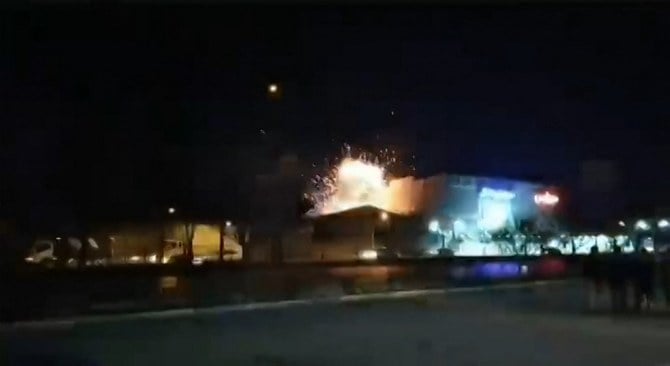
Both the Biden administration and the Iranian regime seem to be hoping to revive the 2015 nuclear deal before Iran’s presidential election in June. This period of renegotiation will probably raise tensions between Iran and Israel to a new high.
Following the establishment of the Islamic Republic in 1979, Israel became one of the regime’s main enemies. Tehran and Tel Aviv have targeted each other indirectly for decades, such as through asymmetrical warfare and cyberattacks, often declining to openly claim responsibility.
The theocratic establishment has mainly used proxies such as Hezbollah to attack Israel. Tel Aviv, on the other hand, has caused substantial damage to the Iranian nuclear program through various methods, including the deployment of Stuxnet — a computer worm — and the targeting of Iran’s nuclear scientists.
Tensions peaked when Barack Obama took office as US president. Before that, one of the major underlying problems that every US administration had with Iran was its hostility toward Israel, Washington’s staunch ally in the Middle East. As a result, Israel felt that the US always had its back when it came to the Iranian regime.
But the Obama White House broke with tradition and was willing to turn a blind eye to Iran’s stance toward Israel. It helped lift all UN and some US sanctions against Tehran by forging the Joint Comprehensive Plan of Action (JCPOA). This agreement gave Iran global legitimacy, strengthened the regime economically, as billions of dollars flowed into its treasury, and empowered Iran’s militia and terror groups.
Toward the end of the Obama administration’s second term, Tehran also ensured the survival of Syrian President Bashar Assad, increased its influence in Syria and began establishing military bases there, posing a significant threat to Israel’s national security.
The Israeli leaders learned a hard lesson from the Obama administration. Feeling abandoned by its ally, Tel Aviv realized there was no guarantee that every US president would view Iran through the prism of its stance toward Israel, or take Israel’s concerns into account when dealing with Tehran.
Abandoned by its American ally again, Israel is feeling very different this time
Dr. Majid Rafizadeh
This lesson significantly affected Israel’s policy on Iran after the Trump administration took office and showed full support for Tel Aviv by imposing sanctions and the maximum pressure policy on Tehran, and pulling the US out of the nuclear deal.
Israel had to seize this opportunity by targeting Iran and weakening the regime because it could not know whether the next US administration would be soft on the ruling clerics. As a result, Israel began directly attacking Iran’s military bases in Syria and Iraq. Last November, for example, the Israeli Air Force conducted airstrikes against eight targets in Syria controlled by the Quds Force. In July 2019, Israel launched cruise missiles toward Iranian and Syrian military positions near Damascus and in Homs. The Israel military struck dozens of other Iranian targets in Syria the same year, and carried out airstrikes in northern Baghdad.
A prevailing narrative within Iran’s political establishment is that, in the final weeks of the Trump administration’s term, Israel was trying to drag Tehran into a war and that the regime must not fall into this trap. A headline in state-controlled newspaper Arman-e Melli last November read: “Trap of tension: Assassination of another nuclear scientist.” The newspaper explained that Iran must be cautious and patient ahead of Trump’s departure from the White House and should neutralize tensions with Israel and the US.
Ultimately, four years of the Trump administration ended and the Iranian regime survived. Obama’s Vice President Joe Biden took office in January and his administration has stated it is prepared to lift sanctions against Iran in order to return to the nuclear deal.
Abandoned by its ally again, Israel is feeling different this time because it believes Iran is pursuing clandestine nuclear activities and is close to acquiring nuclear weapons. The JCPOA will not prevent Iran from obtaining nuclear weapons; instead it will empower the regime. This reasoning has ensured Iran-Israel tensions have reached a new and dangerous level, with Israel last week hitting an Iranian command ship in the Red Sea.
Tensions between Israel and Iran will continue to escalate throughout the renegotiation of the nuclear deal and will have to be contained by the Biden administration.
• Dr. Majid Rafizadeh is a Harvard-educated Iranian-American political scientist. Twitter: @Dr_Rafizadeh
Disclaimer: Views expressed by writers in this section are their own and do not necessarily reflect Arab News" point-of-view












